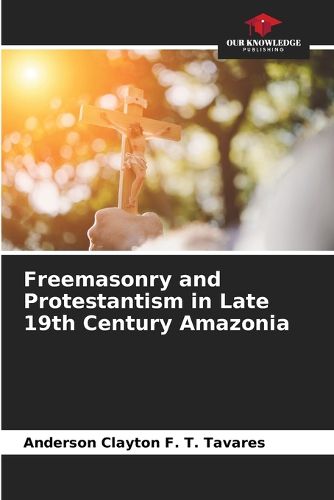Readings Newsletter
Become a Readings Member to make your shopping experience even easier.
Sign in or sign up for free!
You’re not far away from qualifying for FREE standard shipping within Australia
You’ve qualified for FREE standard shipping within Australia
The cart is loading…






This work is based on observations and data collected from bibliographical and documentary analyses, such as magazines and newspapers from the 19th century, in order to understand how the process of estrangement between the Protestant Church and Freemasonry took place in the province of Grao-Para, given that in the 19th century there was a Masonic-Protestant alliance strengthened by the liberal logic that subsidised the strengthening of Protestantism in the region and symbolically decapitalised the Catholic Church, generating a series of conflicts, including the religious issue responsible for the imprisonment of two important leaders of national Catholicism, the Bishop of Olinda and the Bishop of Grao-Para; the theme of this book is directly linked to the success experienced by Freemasonry in the 19th century in the province of Grao-Para, which was able to help the Masonic Order implement its liberal proposal. The Catholic Church, as the holder of religious capital, tried in many ways to decapitalise the Masonic order, weakening it through speeches in newspapers and magazines, in an attempt to discredit Masonic interests in Brazil, causing the Masonic order to be demonised and debased.
$9.00 standard shipping within Australia
FREE standard shipping within Australia for orders over $100.00
Express & International shipping calculated at checkout
This work is based on observations and data collected from bibliographical and documentary analyses, such as magazines and newspapers from the 19th century, in order to understand how the process of estrangement between the Protestant Church and Freemasonry took place in the province of Grao-Para, given that in the 19th century there was a Masonic-Protestant alliance strengthened by the liberal logic that subsidised the strengthening of Protestantism in the region and symbolically decapitalised the Catholic Church, generating a series of conflicts, including the religious issue responsible for the imprisonment of two important leaders of national Catholicism, the Bishop of Olinda and the Bishop of Grao-Para; the theme of this book is directly linked to the success experienced by Freemasonry in the 19th century in the province of Grao-Para, which was able to help the Masonic Order implement its liberal proposal. The Catholic Church, as the holder of religious capital, tried in many ways to decapitalise the Masonic order, weakening it through speeches in newspapers and magazines, in an attempt to discredit Masonic interests in Brazil, causing the Masonic order to be demonised and debased.